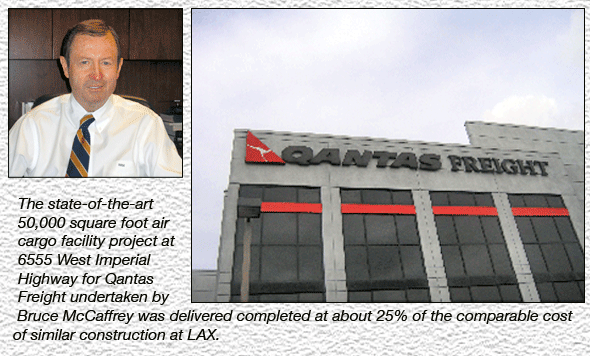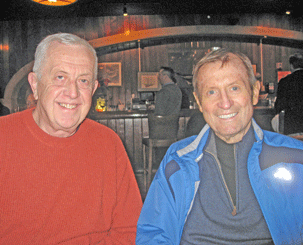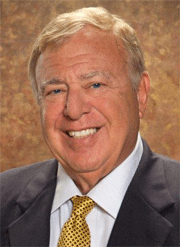Remember the Price-Fixing Air Cargo Surcharges
scandal that rocked the global air cargo industry in late 2010 when 11 carriers
were charged and found guilty? Lufthansa and Swiss apparently threw everybody
else under the bus and got a special deal, while eleven other carriers were
fined with sizably large penalties. On again, off again, the case went on
for the past dozen years, if mostly unreported.
Well,
while you were putting your kids through Grade School, High School and most
of College, if you have been (happily, we hope so…) married for that
long, the airlines have continued fighting the price-fixing fines, with
purpose. We all know airlines are not accustomed to giving up at the first
difference and this seems to be one of those circumstances. Let me also
add that, even if they were actually doing the price-fixing stuff, they
would have been in good company in other sectors . . .
Now apparently, finally Air France /KLM beat
the rap on December 20, 2022, and were issued an annulment by The Swiss
Federal Administrative Court for their €3.9 million fine according
to Linklaters, click here.
So, what about the others?
One
by one, the cases have been annulled but don’t hold your breath just
as yet—this has happened before: in 2015 several cases were reversed,
but were reinstituted again in 2017 on March 17, Saint Patrick’s Day.
One wonders whether the destiny of the saint, which implied a number of
journeys to and from Ireland in different functions, including those of
slave, pastor and revered Christian personality, had anything to do with
the meandering path of these legal measures taken precisely on that day.
Worth recalling in all of this was the action
of Qantas as the only carrier that did not challenge the decision. Recall
amongst the people sentenced, who served jail terms, was the late Bruce
McCaffrey.
Bruce McCaffrey died on February
25, 2014 at age 71 in Bradenton, Florida, from complications of renal failure.
Bruce had worked at Qantas Freight for 26 years and was among the first
people to be caught up and convicted in the air cargo price fix scandal.
Last time I saw him he was awaiting the start of a six-month sentence, but
since he had recently had a kidney transplant, the feds were giving him
time to recover. That was in 2008, and Bruce met his date with a prison
sentence before his date with the grim reaper.
Bruce
McCaffrey attended Harvard Business School and the UCLA Executive Program
in Business, and, like many of us who love America, served during the Vietnam
War, Bruce was a U.S. Army helicopter pilot and infantry officer. After
the war he joined National Airlines, then Pan American, and then Qantas
Freight USA, where he served for 26 years as Vice President of Freight for
North and South America.
I knew Bruce
when he was out in Valley Stream (a community near JFK International) after
he had succeeded Gil Philaba—and later George Stark—as boss
of Qantas Freight USA. He was always by the book and although a bit distant,
he radiated interest in airline history; like me as mentioned, he was a
veteran of Vietnam, so we always found some talking points aside from business.
I continued to consider him one of my close contacts when Qantas threw him
under the bus.
The story of my final meeting
with Bruce has been close to my heart since it occurred one night close
to Christmas 2008, inside the Oyster Bar at Grand Central Station in Manhattan.
Bruce looked like hell at 160 pounds, his body evidence to two potentially
devastating life events. One was recovery from a kidney transplant, and
the second was jail time, as he was amongst the first of the airline executives
caught up in the price-fixing scandal.
 |
Bruce told me about the day in 2006 when
law enforcement swooped into his offices at Qantas Freight Los Angeles
to gather up information, paperwork, and computers. He also remembered
the day he fielded a call from his bosses at the cargo facility ordering
him to report to Qantas headquarters.
Upon arrival, a human resources employee flown
in from headquarters abruptly told him that his job at Qantas was over,
“based on performance.” When Bruce argued that his performance
reviews were always deemed “excellent” and that he led Qantas
Freight USA from 15 percent of total airline air cargo throughput to 25
percent during his tenure, and that during his watch he had delivered
budget numbers 24 out of 26 years (one year his numbers fell was 2001,
marked by the 9/11 tragedy), the HR type simply said: “Actually,
we don’t have to give you a reason.”
The Qantas Freight facility at 6555 W. Imperial
Highway in LAX was a project undertaken by Bruce McCaffrey in 1994. The
result was a state-of-the-art 50,000 square foot air cargo facility with
great location, easy access and plenty of room for air cargo operations
for Qantas Freight and a couple more carriers. As McCaffrey, the old Villanova
University finance major recalled, "best of all, we delivered the
space at about 25% of the comparable cost of similar construction at LAX."
The “reason” became apparent
when Qantas went public the next day with the admission of price fixing,
and agreed to pay a fine and jettison Bruce McCaffrey.
“Maybe I should have seen this coming,”
Bruce said, when we spoke.
“Qantas management called me six months
before I was terminated and offered me a buyout, but I refused. I guess
when you look at the landscape of executives in air cargo that are now
taking the package and getting out, I should have gotten out then too.
I just thought everything would be OK, even with the ongoing investigations,
and I thought that Qantas would handle all the price-fixing allegations.
I went about my business as usual, reporting everything happening in my
freight department to my superiors just as before.”
Bruce McCaffrey was the first fall guy for
the first giant international investigation; at the time, the U.S. DOJ
was reportedly looking to convict some Qantas people headquartered in
Australia when they realized they could not be extradited to the U.S.
Testimony from two Qantas Freight employees that was obtained by DOJ appeared
to be in the end just the words of a couple of employees, who were probably
eyeing immunity, hardly more than that.
Bruce, DOJ was told, had issued instructions
to secure information concerning rates from competitor airlines. As the
charges stacked up in front of him, Bruce learned that in order to defend
himself against an international law enforcement frenzy, he would have
to put up all that he had and more. Bruce McCaffrey faced the demand of
raising an impossible half million dollars, the kind of money airline
people rarely have, to defend himself with no guarantee of success.
Qantas refused to help or support him in
any way, other than promising to share his legal fees, “if he fought
the case and won”. If he fought the case and lost instead, he would
face financial annihilation, fines of one million dollars or more, and
a possible sentence of ten years in jail, Qantas outside of the sad picture.
So Bruce McCaffrey, in total survival mode, agreed to cooperate with law
enforcement, serve time, and pay a fine. For Bruce McCaffrey, 2006 was
the year that was.
 Fast forward to 2008. There he sat, all 160 emaciated pounds, behind a
cup of coffee in the Oyster Bar. Bruce exited the industry—his entire
life—in some manner of disgrace, while most of the people around
him at Qantas got off scot-free.
Fast forward to 2008. There he sat, all 160 emaciated pounds, behind a
cup of coffee in the Oyster Bar. Bruce exited the industry—his entire
life—in some manner of disgrace, while most of the people around
him at Qantas got off scot-free.
“I just spoke to investigators from Canada
this afternoon,” Bruce ventured as we sat in the Oyster. “Recently
I was interviewed by investigators from New Zealand. As often as I am
approached now, I cooperate because of the offer of immunity.
“Investigators want to know about
the business of air cargo,” Bruce McCaffrey said. What Bruce did
not say is what was most apparent. Ongoing interviews, by a widening group
of law enforcement characters from an expanding list of countries, served
as primers on air cargo for the prosecutors at home and abroad, who among
other things were looking to make a reputation by descending upon our
industry like a school of blood-thirsty sharks.
As Bruce spoke to us that last time in 2008,
we recalled visiting Bruce in Los Angeles in 2005 at Qantas Freight; although
at that point, fully on the job, his health had already declined after
a mild stroke, but Bruce loved what he did and was always proud to work
for and deliver on budget for Qantas Freight.
I remember we exchanged memorabilia and did a
story on Bruce. We felt lucky to have that opportunity because at that
point, even after 26 years at Qantas, he almost never appeared in air
cargo media at all. We suggested a trip down under, but Bruce, who checked
everything with the home office, could not get us a bump up to Business
Class and the trip idea fizzled when I thought of 14 hours with my chin
to my knees. Later, when we thought about it, after the price fixing scandal
hit, how could someone who had to check for an upgrade, mastermind something
as vast as the price-fixing scheme? Ridiculous!
When word came that Bruce McCaffrey, the straight
arrow guy I had known for many years, was in a price fixing beef with
the U.S. DOJ, my first reaction was disbelief. He was overwhelmed by forces
at work in a shameful episode in air cargo history. Now that he is gone,
we can only marvel at the spirit and determination that Bruce—a
guy who once lived for air cargo—gave to air cargo.
Somehow he managed to live another six years
after losing almost everything, except his determination to not back down.
“I never made a major decision that was not checked with headquarters.
I’ll be dammed if I will allow these charges against me to determine
my life,” Bruce told me. And he never did.
So now what happens? Individuals we know
still working in air cargo paid by going to jail because of policy endorsed
by their companies. So against the possibility that maybe “that
is all she wrote” about air cargo price fixing, we wondered if the
entire scandal was driven in some part by less than transparent reasons
and who benefited in the end? The old principle cast in Roman stone: “cui
prodest?” [who benefits from this?] should be guiding our thoughts.
 Sharing
some feelings early in 2023 the most senior and knowledgeable air cargo
executive, Bill Boesch, who served as President of American Airlines Cargo
and put them on the international cargo routes of the world after serving
at legendary Seaboard World Airways and top management at Pan American
Clipper Cargo and many others, including today the U.S. Military, said
“The price fixing reality with the airlines in reality was a bit
of shadow boxing, an art of the game if you will.” Sharing
some feelings early in 2023 the most senior and knowledgeable air cargo
executive, Bill Boesch, who served as President of American Airlines Cargo
and put them on the international cargo routes of the world after serving
at legendary Seaboard World Airways and top management at Pan American
Clipper Cargo and many others, including today the U.S. Military, said
“The price fixing reality with the airlines in reality was a bit
of shadow boxing, an art of the game if you will.”
“When (as airlines) we had immunity
from pricing, as members of IATA we used to go to the meetings agree on
a price, and then undercut each other in order to get the business. Thinking
that the airlines would agree on a price and then stick to it was utter
nonsense. Bruce was the fall guy and quite frankly his company didn't
back him the way they should have.
“In the first place It's almost impossible
to prove price fixing unless you can see that all the airlines had the
same price and didn't give lower prices for volume. Also Contract Prices
started at that point and each contract was different so how do you prove
that the airlines all got together and decided on the price?” Bill
Boesch wondered.
In hindsight it is difficult to see who
was right and who was wrong and even if there is a chance to establish
a principle. There was once the allegation that airlines had been illegally
fixing prices with regard to their cargo operations. In time the allegation
became a judgement and some of those found guilty suffered consequences
and paid. We say some, precisely . . .
Now we seem to discover that many who survived
through these troubled times managed to get their record polished of all
charges, but we are not one inch closer to the truth than we were years
ago. On the opposite side we know for sure that some of those who suffered
most were probably not those indicating criminal behavior.
If we were law enforcers and prosecutors,
we would probably have to listen to testimony and many different sources,
regardless of the distance in time. As journalists we are content with
telling stories and bringing the elements that we know to the attention
of our readers, in hope that they would make their opinion about the story
we are telling them. If any of our readers feels touched by the expressions
we have used, we shall be more than happy to give them the opportunity
to submit their observations and publish them, with compliments, in the
same publication.
GDA
|





